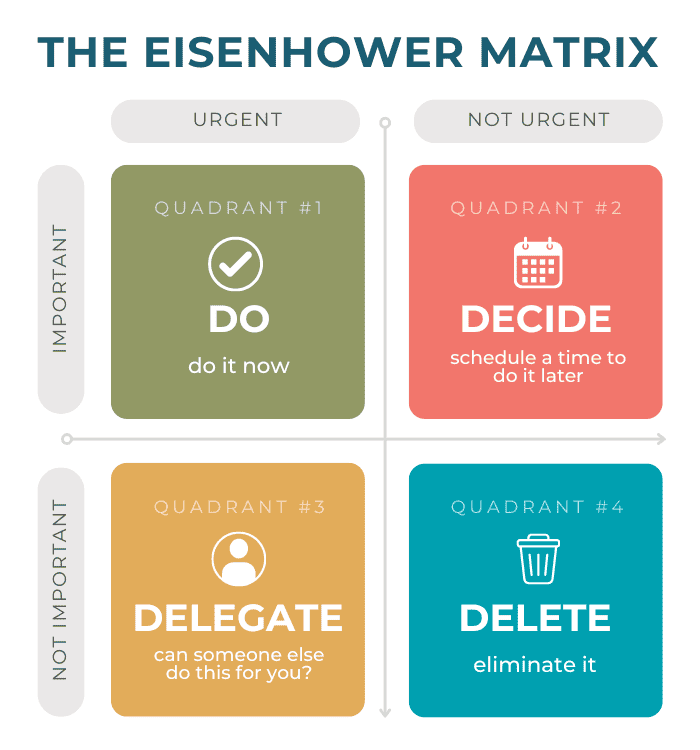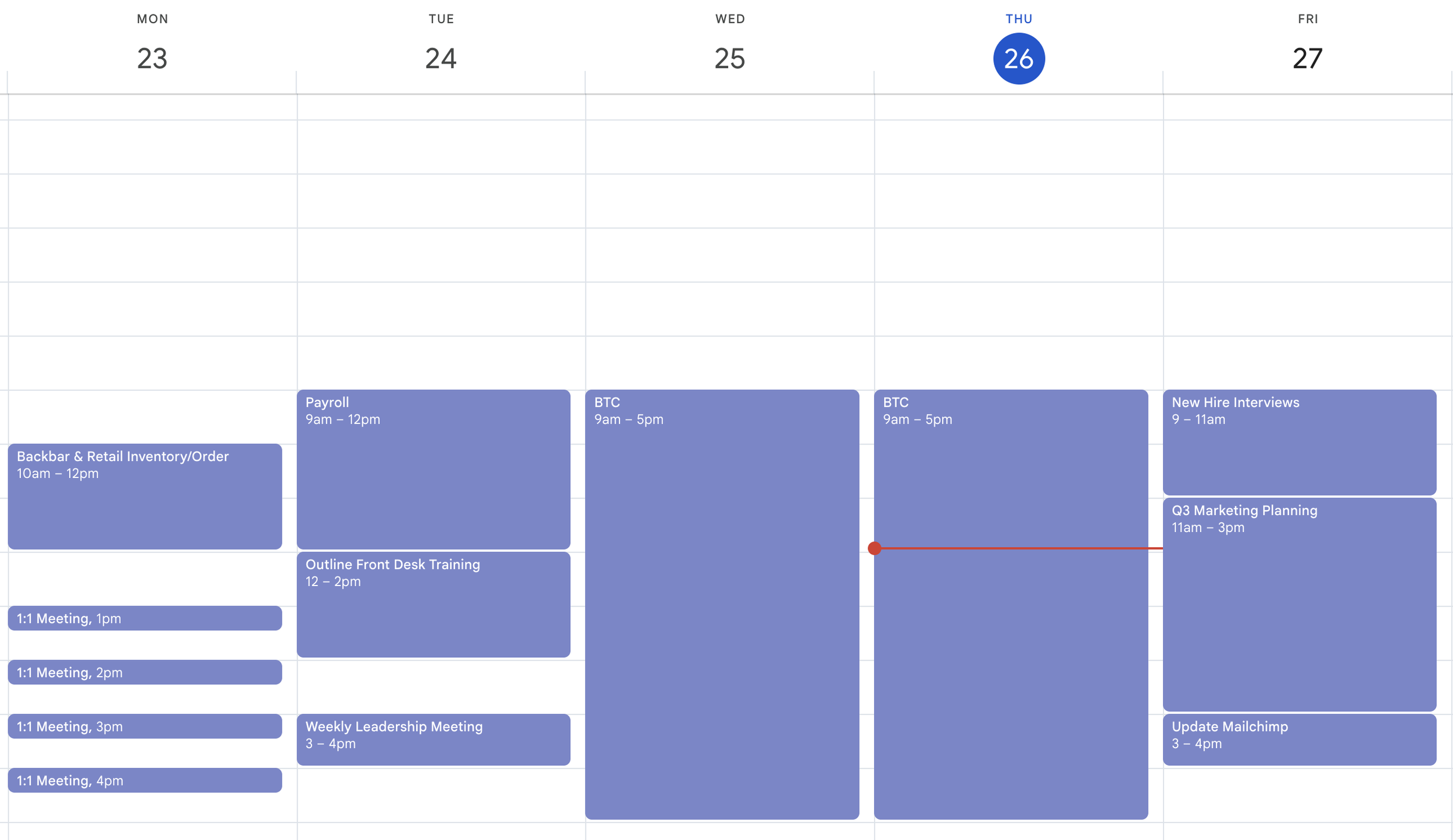#35 The Best Way to Organize Your Time When You Feel Like You Don’t Have Any
Ever drive home from the salon and think, “What did I even do today?”
Yeah. Been there.
You look at your calendar, you know you had time, but somehow, you feel like you did everything and nothing all at once. One of our RLCEO students put it perfectly: “Even though I have the time, I still feel like I go through the week Willy Nilly.”
And let me tell you, there is nothing that feels more disorienting than finally stepping back from behind the chair…and then realizing you don’t know what to do with that time.
This isn’t a failure. It’s just a new role that requires a new skill.
You already did the hard part; you cut back hours behind the chair, whether it was completely or just a few days a week… But now, you need a plan to fill that space with intention.
Enter: time blocking.
It’s basically how I was and still am able to get anything done.
Why It Works
Think of it like this: you wouldn’t just guess how long a highlight takes, right? You block time for it. You prep. You stay focused on that guest.
Time blocking applies that same structure to your back-end salon work, admin days, leadership tasks, training, and planning for all of it. Instead of floating through your week doing “whatever comes up,” you give your brain a map. A plan. A guide to follow.
Here’s How I Do It:
1. Write Down Everything You Need to Do This Week
I like to use the Eisenhower Matrix to organize my tasks. This method helps you prioritize tasks based on their urgency and importance. You divvy up your tasks into 4 quadrants:
1) Urgent & Important (Do)
2) Important But Not Urgent (Decide)
3) Urgent But Not Important (Delegate)
4) Not Urgent & Not Important (Delete)
Then write it all down, either on paper or type it out.
Next, identify your most urgent and important tasks first. Payroll, schedule updates, ordering inventory, whatever needs to get done ASAP and can’t be done by anyone else but you. These are going to be the first tasks you block out time for.
2. Open Your Calendar
I use Google Calendar, but any calendar will do. But using a digital one is the way to go.
Go through your week and create actual time blocks, like you would for guest appointments, but for each task. Be realistic about how long each one takes. If you need two hours for payroll on Tuesday, block two hours. Don’t just assume you’ll “fit it in.”
Go in and block time for your Urgent and Important tasks first. Then block time for your Important But Not Urgent tasks second.
Anything that is Urgent But Not Important, make a note to delegate that to someone else on your team, OR if there’s no one else that can do it, block time for it on your calendar the following week.
Same for Not Urgent & Not Important - either delegate it, delete it, or block time for it in the future.
Treat these like guest appointments. They’re non-negotiable.
Here’s an example of what a Time-Blocked calendar could look like:
3. Stick to Your Blocks (Even When It’s Boring)
Here’s the trick: when you’re in your “run payroll” block and your brain tries to jump ship and do something easier? Don’t. Stay in the block. Push through.
You wouldn’t stop a balayage halfway through because an easier guest walked in, right?
Same thing.
This is how you build focus. This is how you rewire the habit of reacting to the day instead of running it.
4. Reflect + Adjust Each Week
Some blocks will take longer than expected. Some will be too short. Some you’ll skip entirely because, well, life.
That’s normal. And it’s gonna happen.
Even if you time block to perfection, things are still gonna get messed up sometimes, and it’s okay.
At the end of the week, look at what worked and what didn’t. Refine it. Keep going.
Time blocking is a practice, not a prison.
Final Thoughts: Time is Not the Problem
If you feel like you “don’t have time,” chances are you actually do, but you’re lacking structure and you’re stuck in Willy Nilly land lol.
Time blocking gave me the discipline I needed and the freedom I craved. It helped me stay focused, avoid burnout, and most importantly, gave me my power back.
You don’t need more hours.
You need discipline and structure in your schedule.
You’ve got this, friend.
Salt & Light,
Heather



